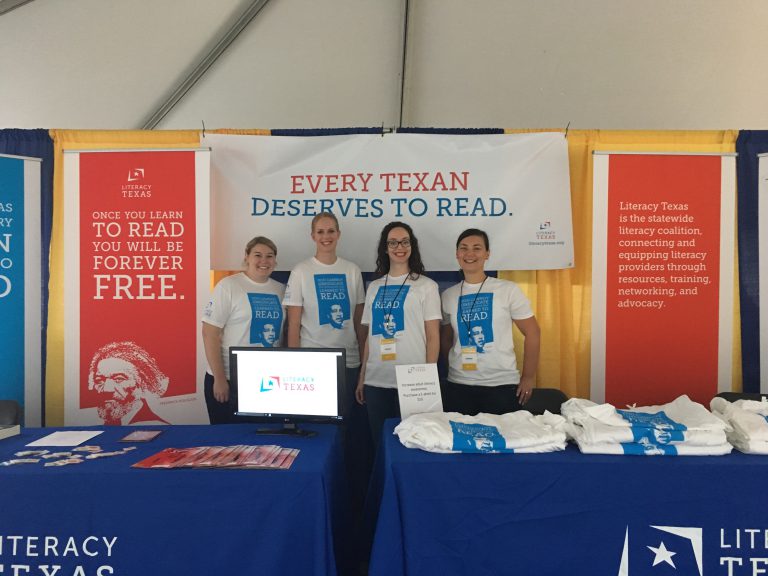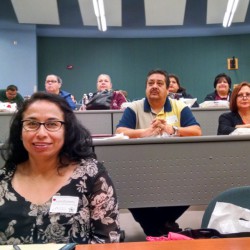“Andragogy” and “pedagogy” can seem like niche academic words – does the difference between them really matter?
At the recent South Plains Literacy Symposium, one of the most popular breakout sessions was A is for Adult: An Introduction to Andragogy. The session was an in-depth exploration of some of the major tenets of teaching adults, and some of the motivators, barriers, and drivers of persistence specific to adults.
And we say, hallelujah!
Too often, our field has taken the approach that “teaching is teaching” – and assumed that someone with experience teaching children must automatically also be able to teach adults effectively. Of course, that’s sometimes true – but it’s far from automatic.
So what are the key differences?
Malcolm Knowles is one of the foremost experts in this area, and he’s broken his definitions down into five assumptions and four principles. Let’s take a look.
Knowles' 5 Assumptions of Adult Learners
1. Self-Concept
People become more self-directed as they age and mature.
2. Adult Learner Experience
People gain practical and theoretical experience as they age, and bring it to the learning process.
3. Readiness to Learn
Adults have a strong motivation to learn things that help them accomplish relevant tasks and gain practical skills.
4. Orientation to Learning
Adult learners are motivated to solve problems, moving from “knowing about” a topic to “knowing how” to do a specific task.
5. Motivation to Learn
Motivation for adults is usually internal, rather than external – and motivations are individual for each learner.
Knowles' 4 Principles of Andragogy
- Adults need to know why they need to learn something.
- Adults need to learn experientially – by doing.
- Adults approach learning as problem-solving.
- Adults learn best when the topic is of immediate value.
So much changes for us as we age – in both our bodies and our minds.
Doesn’t it make sense for the way we’re taught to change as well?
Get Texas literacy updates
Make sure you’re on our mailing list so you don’t miss any news:
- Conference updates
- Regional symposia
- Online training
- Advocacy
- …more!





 If you’re reading this blog, you probably know that Literacy Texas is an organization dedicated to adult education and literacy. We focus our efforts in this area because the adult learner population in Texas and in the United States as a whole has been under-served for many years, and because we know the difference that literacy and education can make on a person’s life. But our motto is this: Every Texan deserves to read. And for over a million economically disadvantaged children in Texas, reading is made much more difficult by lack of access to books.
If you’re reading this blog, you probably know that Literacy Texas is an organization dedicated to adult education and literacy. We focus our efforts in this area because the adult learner population in Texas and in the United States as a whole has been under-served for many years, and because we know the difference that literacy and education can make on a person’s life. But our motto is this: Every Texan deserves to read. And for over a million economically disadvantaged children in Texas, reading is made much more difficult by lack of access to books. This week, we’re pleased to bring you another interview with a little perspective from a former first-timer. Take note of Pranjali Mardhekar’s insight and practical advice, and share your own questions and impressions of our conference below!
This week, we’re pleased to bring you another interview with a little perspective from a former first-timer. Take note of Pranjali Mardhekar’s insight and practical advice, and share your own questions and impressions of our conference below! As many of you know, in 2013 Texas moved its Adult Education and Literacy program from the Texas Education Agency to the Texas Workforce Commission — and for good reason! AEL is absolutely essential to the cultivation of a successful workforce. Need proof? Data from the U.S. Department of Labor shows that in 2016, adults with a high school education made an average of 37% more than those without. Investment in adult education is investment into the workforce, and it’s important that adult education doesn’t stop at just literacy; it should also help students learn how to move into the workforce.
As many of you know, in 2013 Texas moved its Adult Education and Literacy program from the Texas Education Agency to the Texas Workforce Commission — and for good reason! AEL is absolutely essential to the cultivation of a successful workforce. Need proof? Data from the U.S. Department of Labor shows that in 2016, adults with a high school education made an average of 37% more than those without. Investment in adult education is investment into the workforce, and it’s important that adult education doesn’t stop at just literacy; it should also help students learn how to move into the workforce.
